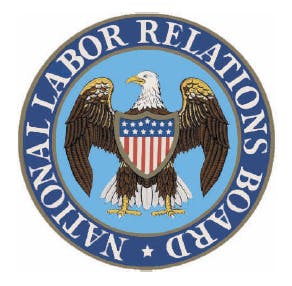Restricting your employees from talking to the media could end up hurting more than helping when it comes to unionization drives.
As many readers know, I’m not a fan of blanket, overly restrictive social media policies. The same is true of blanket media and communication policies. They never work as intended and they cause far more issues than they solve. And with the recent settlement of the National Labor Relations Board (NLRB) case involving Facebook last month, I figured it was only a matter of time before another case involving media (social or otherwise) would result.
I just didn’t think it would be this soon.
Sodexo and the SEIU
Sodexo, one of the largest food and maintenance services companies in the world, is battling the Service Employees International Union (SEIU). There has been a war of words, supposed dirty tricks and competing websites stating their cases. It may have even cost them a lucrative contract for the U.S. Department of Defense.
Battles between businesses and unions are typically not pretty. And if you have paid attention to the very public struggles in Wisconsin and elsewhere, you know that it is also difficult to gain public sympathy for the business (or government in Wisconsin’s case). Employers are typically rewarded when they coldly lay out their case to the public and wait until emotions die down.
NLRB ruling stings
That’s why the folks who work labor relations had to be shaking their heads over the ruling by the NLRB taking them to task over their restrictive media policy. As the HRE Online Leader Board reports:
According to the Service Employees International Union, Sodexo settled a speech case with the National Labor Relations Board concerning its media policy for employees.
“As a result, Sodexo has issued a new media policy that does not infringe upon the right of workers to speak about their working conditions and workplace issues. Sodexo must notify all workers in the U.S. about the policy change,” according to SEIU.
Sodexo had previously restricted employees from talking to the media, requiring employees to refer all questions to a manager. Not an unusual policy for sure but when applied strictly, it could infringe on an employee’s ability to speak about their workplace issues freely. The only time they could restrict it is if they were speaking as a representative of the company.
About more than policy
Of course, the big piece of this isn’t the change in policy. I think in practice, this does very little to how these policies are generally enforced.
What’s more important is that SEIU won a victory over Sodexo in front of the NLRB. When a union is trying to sell itself to members, it is trying to sell progress. While the victory may be a minor one in practice, it is something to point to and say, “Hey, we’re working for you. You might have been able to do this yourselves but we did it. We’ll pursue any important issue, big or small.”
More so than anything in this case, that’s what I would be concerned about the most.
Policies have to agree with the law
The NLRB has been much more active than in years past of taking on cases like this. With the case involving the use of Facebook for concerted activity, I said:
While I believe that you should treat social media like any other communication platform and keep specific policy to the minimum, I wonder if this will scare more companies into banning it completely at work? While I wouldn’t condone that action, I could see why employers might want to mitigate that risk through an outright ban.
The best suggestion right now, if you have an ultra-strict policy, is to make some modest changes to take into account concerted activity. At the very least, the NLRB has indicated that Facebook is one of those places where that can happen.
Now, more than ever, your policies have to cooperate explicitly with NLRB rules and concerted activity regulations. And if you choose to ignore it or take a risk on a restrictive policy? Good luck fighting the union off with an extra feather in their cap.
